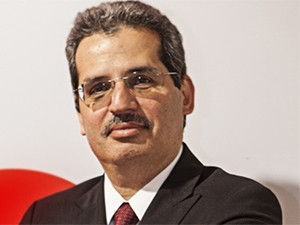
True development cannot happen when half of the workforce is secluded.
This was the word from Dr Nasser Marafih, group CEO of telecoms operator, Ooredoo. He made these comments during a keynote address as part of the GSMA Connected Women Summit on the opening day of the GSMA Mobile 360 conference in Cape Town this week.
There are a number of factors facilitating gender differences in this industry, he noted. Marafih highlighted affordability, relevant content, cultural barriers, and educational and literacy disparities as contributors to gender inequality.
He spoke specifically to Ooredoo's efforts to launch women-focused products in Iraq. This involved designing a programme and developing content and solutions to meet the unique needs of women living in the Middle East. A programme that saw female subscriber figures increase by two million users.
Marafih also discussed the company's work developing an application, MayMay, in Myanmar. The app aimed to improve maternal health services and education for expectant mothers in the region.
"We believe that education is a major issue. It is important to provide local content in local languages."
Women on the move
In regions where there is a general lack of resources, mobile empowers women by allowing them to connect, noted Kellen Eilerts, regional director for east and southern Africa at Human Network International. It is important to establish public-private partnerships to facilitate education around issues that directly affect women.
"Mobile allows women to overcome a lot of the traditional infrastructure challenges faced by people in developing countries. Mobile levels the playing field by letting women in rural areas access services that are of interest to them. This is where the importance of good local content comes in so they can see the value of having a phone in the first place."
Women who have online access use the Web not only to increase their social networks but also to increase their social capital and to link up with new economic opportunities, noted Ingrid Brudvig, women's rights research and advocacy coordinator at the World Wide Web Foundation.
"There is great potential for really taking on some of the challenges and struggles we have been fighting in terms of gender equality."
Christopher Burns, acting director of digital development at the US Agency for International Development Global Development Lab, noted its work is centred around lifting the most underserved out of poverty, and this very much includes women.
According to Burns, mobile technology really captures the essence of what digital tools can do to address these issues. "If you look beyond the sheer communication power of mobile technology, the increased level of access to information really positions mobile technology as the tool to embrace here."
Access to formal financial services is an extremely important element of this discussion, particularly for women in impoverished communities, who rarely have any form of financial autonomy, he added.
Brudvig cited cheaper connectivity as one way to bridge not only the global digital divide but also broader gender divides. She also noted a lack of skills, knowledge and self-confidence among women who do not properly understand technology and the value of getting online. This goes beyond access to mobile technology, added Burns.
"There are a lot of critical elements to empowering women, and anyone, with mobile technology. Affordability and digital literacy are important ones." He described the promotion of digital literacy among both men and women as an imperative in this space.
"You need to go out and see where the information gaps are," concluded Eilerts. "Look at what people are interested in and see how mobile can aid this rather than expect mobile to be a silver bullet. Mobile has be a complement to other solutions that are also being improved at the same time."
Share